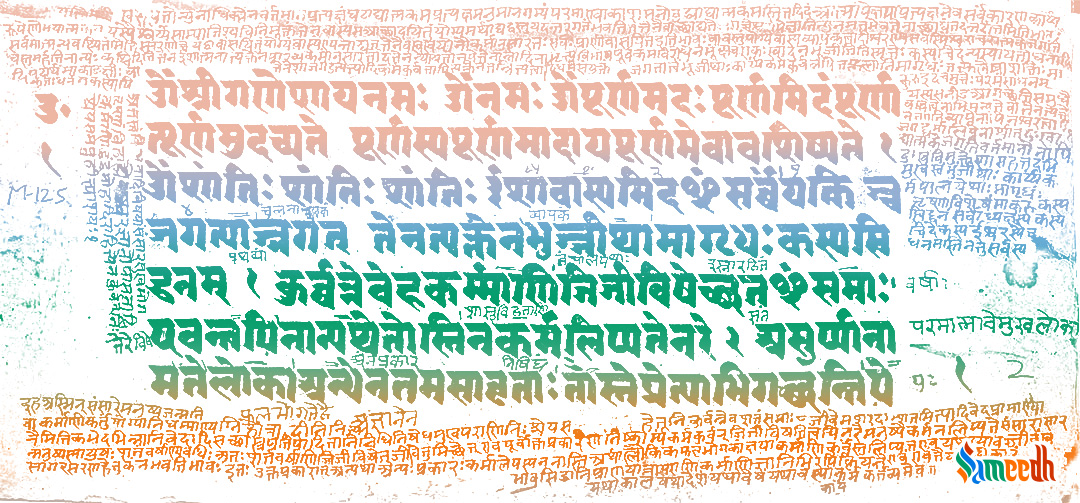The Isha Upanishad is one of the shortest and it is included in the Shukla Yajurveda’s final chapter (adhyya), Isha Upanishad are ancient Indian philosophical texts that form the basis of Vedanta, one of the six orthodox schools of Hindu philosophy. The Isha Upanishad is part of the Shukla Yajurveda and consists of 18 verses.
The word “Isha” means “the Lord” or “the Divine,” and the Upanishad explores various aspects of the relationship between the individual soul (Atman) and the ultimate reality (Brahman). It addresses fundamental questions about life, death, and the nature of the self.
The Upanishads are intellectual and religious treatises. They are the culmination of the Vedic revelation. They reflect Brahman’s knowledge (Brahma-Vidya). What is the nature of this world? Who am I, exactly? What happens to me after I die? – In these Upanishads, such questions are posed and answered. The Upanishads’ central theme is the nature of the world and God. The Upanishads’ main content consists of philosophical musings. Their material is anti-ritualistic in spirit. The Upanishads are the most well-known of all Vedic literature, and their different concepts, interpreted in numerous ways, influenced Hinduism’s later traditions. Vedanta is a term used to refer to the Upanishads. Vedanta has been translated as “the last chapters, sections of the Veda,” as well as “the highest goal of the Veda.” The goal of all Upanishads is to “guide the reader towards” understanding the nature of Atman (self). Despite the fact that the subject matter of most of the Upanishads is nearly identical, each Upanishad has its own distinct thought or ideas as well as its own technique of inquiry. The Isha Upanishad, or Ishavyasam, is one of the shortest Upanishads, and it is included in the Shukla Yajurveda’s final chapter (adhyya).

Image by Ms Sarah Welch
One of the key themes in the Isha Upanishad is the idea that everything in the universe, including the material world and the individual souls, is pervaded by the divine presence (Brahman). It emphasizes the concept of detachment from the material world while actively participating in it, advocating a balanced and spiritually conscious way of life.
The Origin Of Ishavasyam
The Isha Upanishad or Ishavayasm is a key text in the Vedanta sub-schools, as well as an influential ruti in Hinduism’s various schools. It is Yajurveda’s 40th chapter. The text’s name comes from its incipit, vsyam, which means “enveloped by the Lord” or “hidden in the Lord (Self).” The text explores Hinduism’s Atman (Self) idea and is cited by both Dvaita (dualism) and Advaita (non-dualism) Vedanta sub-schools.
Ishvara’s root is – (Ish), which signifies “capable of” and “owner, ruler, chief of,” and is ultimately cognate with English own (Germanic *aigana-, PIE *aik-). Isha literally translates to “ruler, master, or king.” Vsyam literally translates to “hidden in, surrounded with, wrapped with.” The Upanishad phrase “Isha” can be translated as “Lord” or “Self” (one’s own Self). Ishavasya Upanishad and Vajasaneyi Samhita Upanishad are two more names for the Upanishad.
In verses 2–6, the Isha Upanishad recognizes the conflict within Hinduism between the empirical life of householder and karma and the spiritual life of detachment and wisdom (jnana). One root of sorrow and suffering, according to the Isha Upanishad, is viewing one’s Self as distinct and conflicted from the Self of others, supposing that the nature of life is a conflicted duality in which one’s happiness and suffering are viewed as distinct from the happiness and suffering of another living being. Such grief and suffering, according to the Upanishad, cannot exist if a person realizes the Self in all things, comprehends the Oneness in all of existence, and concentrates on Universal values, the Self, and Real Knowledge rather than particular egos.
The Meaning
The uncompromising reconciliation of uncompromising extremes is the guiding theme throughout the Isha Upanishad. This Upanishad strives to grasp the knots’ extreme ends, disengage them, and position them beside each other in a release that is both correct in placement and connection. It will not overly qualify or subordinate any of the extremes, despite the fact that it recognizes their interdependence. The goal is utter and absolute unity, but this absoluteness must be brought to its highest term by including the entire infinite multiplicity of things in it; action must be complete and ungrudging, but the soul’s freedom from its works must be absolute; the goal is utter and absolute unity, but this absoluteness must be brought to its highest term by including the entire infinite multiplicity of things in it.
The Isha Upanishad is considered a foundational text in Hindu philosophy, and its teachings have influenced various spiritual traditions. It is often studied and commented upon by scholars and spiritual seekers as it delves into the profound nature of existence and the path to self-realization.